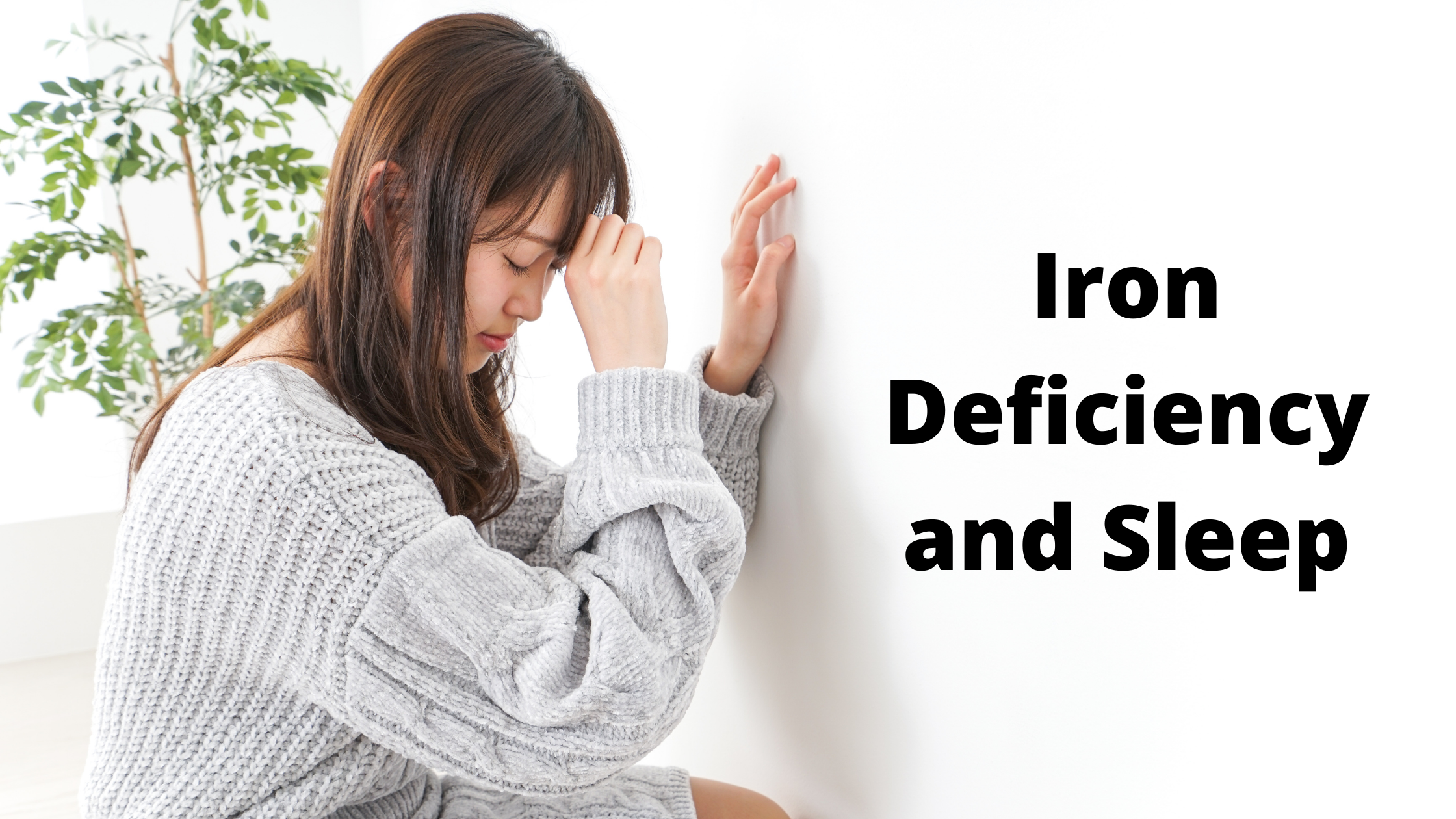
Iron deficiency anemia is a very prevalent disease in the United States. It stems from having an iron shortage that impacts the blood's ability to properly transport oxygen throughout the body. These can lead to serious pain and even sleep disturbances. Treating anemia may help to relieve insomnia and other sleep problems. Continue reading to find out how anemia impacts sleep and what you can do to help treat it.
What is iron deficiency anemia?
Anemia happens when the body doesn't have enough red blood cells. Red blood cells are responsible for delivering oxygen throughout the body and collecting carbon dioxide to expel during exhalation. There are different types of anemia, but the most common one is iron deficiency. Iron is needed to produce the protein hemoglobin which grabs the oxygen so the red blood cell can transport it. Without iron, red blood cells cannot bind oxygen and therefore deliver it to the rest of the body.
Iron deficiency anemia can be caused by a lack of sufficient iron in the diet, problems with iron absorption, major blood loss, and in some cases, infection. Pregnancy can also cause anemia because of the increase in demand of blood.
Risks for iron deficiency anemia include:
- Older age
- Women
- Pregnancy
- Menstruation
- Minority status - Black or Hispanic
- Low-income families
Anemia is diagnosed through blood tests that measure red blood cells and hemoglobin. Hemoglobin levels less than 13.5 gm/dl in men and 12 gm/dl in women indicate anemia.
Anemia symptoms
Symptoms of anemia can vary, and sometimes anemia is present without symptoms. Feeling tired and sluggish, or experiencing weakness and lack of energy to meet the demands of daily life are very common. Other symptoms include, but are not limited to:
- Irregular heartbeat
- Chest pain
- Being short of breath
- Feeling dizzy or lightheaded
- Headaches
- Feeling cold in extremities
- Pale and/or yellow skin
- Cognitive difficulties, including lack of focus or attention
Genetic link between anemia and insomnia
Several studies have explored the genetic underpinnings of insomnia by conducting a genome-wide analyses to identify genes associated with insomnia. MEIS1 is strongly associated with insomnia and is also associated with iron-deficiency anemia as it is involved in the metabolism of iron in the body.
This gene has already been linked to restless legs syndrome which is a neurological condition that can impact sleep. These individuals experience a powerful urge to move their legs and other parts of their body to relieve a tingling, itching, or general discomfort. It's almost like a crawling sensation of the elgs. They occur more often during times of inactivity, like sitting or lying down. Therefore, they are much more likely to intensify at night. RLS can cause major disruptions to nightly rest making it difficult to fall asleep and to remain asleep throughout the night.
People with low iron levels, especially in the brain, are more likely to have RLS. Iron deficiency is considered a significant and under recognized cause of RLS.
Anemia and the risk for insomnia
Analyzing the link between anemia and insomnia is still relatively new and requires a lot more research. However one study looked to see if having anemia elevated the risk for insomnia and found that there were several connections between the two conditions. One finding was that people who had been identified to have anemia had higher prevalence of insomnia. Also the presence of prior anemia was associated with a 32% greater risk of developing insomnia six years later. Severe anemia was strongly linked to increased risk for insomnia while mild and moderate anemia was also associated with an elevated insomnia risk but to a lesser degree. Men with anemia were found to be at greater risk for insomnia than women with anemia.
What you can do
If you're experiencing chronic insomnia then you should talk with your doctor. If you're unsure if you have anemia, then they can check on your hemoglobin levels to see if you in fact do have anemia, and if that could be linked to your sleep troubles. If you cannot find a solution on your own, please click the orange box below to take a free online sleep test and get in contact with a professional.
https://thesleepdoctor.com/2021/05/04/can-treating-anemia-help-relieve-insomnia-and-other-sleep-problems/

